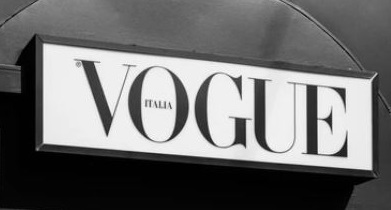Vogue Vs Vogue: A Case Of Passing Off Action?
Introduction
In a significant judgement being M.M. Kariappa v. Advance Magazine Publisher’s Inc, the Karnataka High Court observed the importance of the consequences of a certain trademarked word and decided the validity of another organisation using it through the impact that the word created on the general public. It upheld the principle of how the alleged trademark infringement would pan out in the eyes of a reasonable individual of the context in question and questioned if it is expected of the same to not be deceived by the allegedly infringed product name as being related to one of the original trademarked names.
The facts of the case pertain to the respondent using its trademarked title name “Vogue” as the name of its internationally recognized fashion magazine since 1892. On the other hand, they discovered a training organisation using the same name being “VOGUE Institute of Fashion Technology” (hereinafter referred to as Vogue Institute) and sued the same for trademark infringement. The case appeared in front of the trial court who ruled in favour of Vogue Magazines and held the institution guilty of trademark infringement while also awarding reliefs and concurrent profits to the plaintiff. However, Vogue Institute instantly appealed to the Karnataka High Court bench who overturned the verdict of the Trial Court.
[Image Sources : Shutterstock]
The judgement involves various new angles being taken by both the counsels to sell their case. The counsel for petitioners being Vogue Institute argued using the generic nature of the term “Vogue” while correlating it to the lack of Indian population being aware of the Vogue magazine. Moreover, the magazine trademark was covered under Class 16 of Trademarks Classification of Goods and Services which had a restricted source of activity being covered under its purview and did not include the plaintiff’s course of business. However, the counsel for defendants being Vogue Magazines used the defence of a hallmark transborder reputation of their magazines and the fact that their market in India even if not very widespread, was substantial enough for consumers to be passing off the plaintiff’s tag as their own. Moreover, even though the activity was a different one than what their business was involved in, both of them catered to a similar if not same set of target audience and hence the verdict of the Trial Court should be upheld.
The High Court is an elaborate 49 paged judgement ruled in favour of the plaintiff, being Vogue Institute, by pointing out numerous observations that the Trial Court had missed. Justice MI Arun highlighted that the fashion magazine’s readers are probably aware that it does not own a fashion institution, and given the amount of care that the typical aspiring student is likely to take, it is quite improbable that they would think the institute was affiliated to the magazine. He also observed that a considerable portion of the general population does not subscribe to or read the fashion magazine that the plaintiff publishes. It is utilised by a small segment of the population that is normally conscious of fashion. Customers who subscribe to the plaintiff’s magazine are likely to be aware that it does not operate an institution but instead focuses solely on publishing periodicals. Similar to how people who enrol in the defendants’ institute are familiar with the fashion industry, it is very improbable that they would mistake the defendants’ institute for the plaintiff’s if they were to examine the level of caution that the average student is likely to exercise. Hence, this put the onus of proof subject to the consequences of the infringement that would come up through a reasonable individual belonging to the target audience. The magazine also claimed trademark infringement, but renounced its claim because both trademarks were registered under various categories. As a result of the Court concluding that there was no trademark infringement, the only issue that remained was whether the institute’s use of the name “Vogue” constituted passing off.
The basic idea behind a passing off lawsuit is that it is illegal for someone to misrepresent their own products or services as those of another. It is enforceable with regard to all trademarks, whether they are registered or unregistered, and is an action for infringement of common law rights. The key to the solution is false and misleading portrayal that causes confusion or deceit. The sole factor to be taken into account is whether the mark is likely to mislead or confuse consumers who may mistakenly believe they are purchasing products from the defendants instead of the plaintiff.
Conclusion
The Supreme Court ruled that the trial court erred in failing to consider that the Institute’s use of the phrase was not likely to confuse prospective students or magazine readers. As a result, it invalidated the trial court’s ruling and accepted the institute’s appeal. Hence, it threw out the appeal while also paving the way for newer perspectives on trademark infringement.
Author: Samridhi Bajoria, A Student Of National Law University Odisha, in case of any queries please contact/write back to us at support@ipandlegalfilings.com or IP & Legal Filing.
REFERENCES
https://www.foxmandal.in/News/vogue-institute-unlikely-to-be-confused-with-vogue-magazine-karnataka-high-court/#:~:text=Vs.,in%20India%20under%20Class%2016.
https://www.scconline.com/blog/post/2022/11/25/vogue-fashion-magazine-v-vogue-fashion-institute-no-trademark-infringement-or-passing-off-committed-by-the-institute-holds-karnataka-hc/
M.M. Kariappa v. Advance Magazine Publisher’s Inc. (2022 SCC OnLine Kar 1593)



